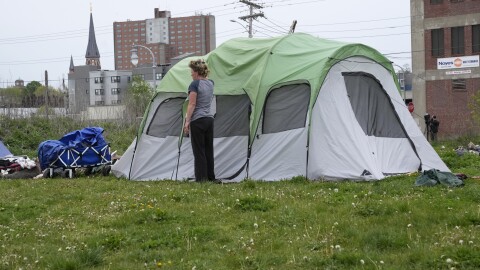Maine is joining nearly 20 other states in suing the Trump administration over a new policy that will cut federal funding for homelessness programs.
The new policy, announced earlier this month, caps funding for permanent supportive housing. State officials have said as a result, about 1,200 people in Maine could lose their long-term housing and risk becoming homeless.
"Winter is coming here in Maine and now the administration is redirecting congressionally appropriated funds that keep over 1,200 Mainers housed,” Attorney General Aaron Frey said Tuesday in a statement. "While there is little doubt the courts will agree that the administration has once again overstepped, the chaos and uncertainty these decisions create are harmful and unnecessary."
The attorneys general argue that the U.S. Department of Housing and Urban Development violated its own regulations in making these policy changes, because it did not seek public comment or receive congressional authorization to shift federal funds and set new requirements.
The lawsuit also argues that HUD made no effort to explain why it abandoned longstanding policies that centered around concept known as "Housing First," and instead toward short-term transitional housing and shelters. "Housing First" is a principle that some states, including Maine, have used for a long time. It assumes that chronically homeless people need a stable, long-term place to live before they can address factors that may have allowed them to become unhoused in the first place.
The lawsuit was filed in federal court in Rhode Island.




